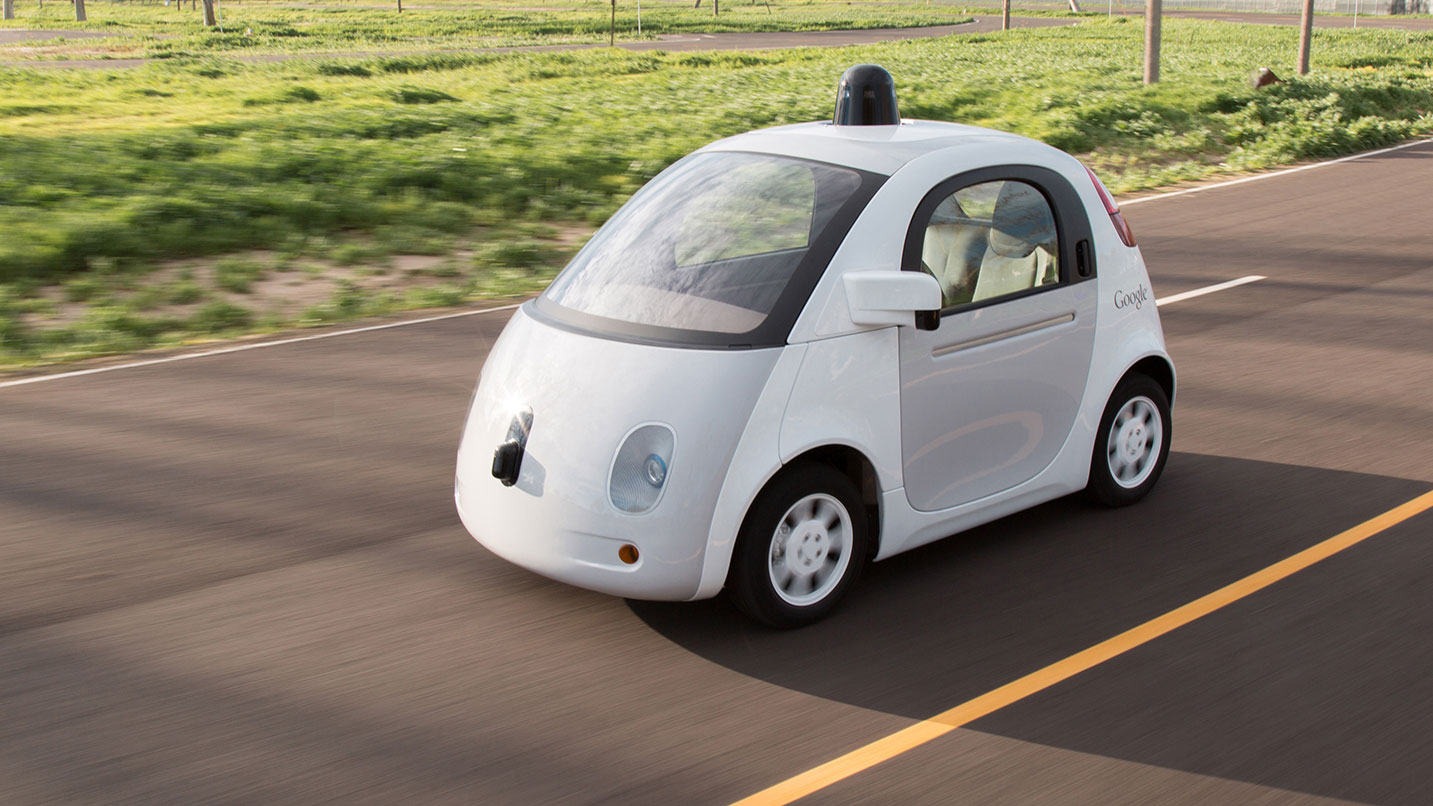
There's been so much hype about driverless cars anyone would think they were on the verge of taking over the world.
But there are many reasons why fully autonomous vehicles - to use a more formal name - will take much longer to reach mass adoption than tech utopians like Google would have us believe.
Here's a rundown of the main challenges they face.
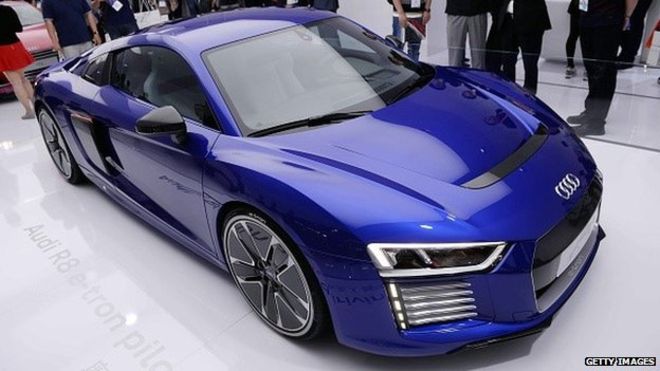
Audi's prototype driverless car is sportier than Google's, but will it ever go mainstream?
Ethical dilemmas
Our driverless cars will be programmed to avoid collisions, especially with people. But suppose a mother pushing a buggy steps out into the road suddenly and the car does not have enough time to stop.
Does it swerve into the path of oncoming traffic, potentially threatening the lives of its own passengers and the lives of others? Would it make a different decision if a cat ran out in front? Who will be responsible for programming such decisions into the car? And what if you don't agree with the default ethical algorithm - should you have the right to override the default settings?
There are doubts over whether the technology will ever become sophisticated enough to handle such decisions anyway.

Would scenes like this become less frequent with autonomous vehicles?
Of course, the car industry is well aware of all these ethical issues, which is why Mercedes-Benz owner Daimler is holding an "Autonomous Driving, Law and Ethics" conference this autumn for the first time, and manufacturers are consulting philosophers and ethicists.
But philosophers are not known for consensus thinking, which is exactly what will be needed to tackle these issues at an industry-wide level.
Who's to blame?
While law-abiding driverless cars, with all their cameras, sensors, radars and faster-than-human reaction times, could undoubtedly help reduce accidents (90% of which currently caused by driver error), no-one is foolish enough to believe that they will be flawless.
They will occasionally crash and perhaps even kill people. A few of the ones being tested in the US have already been involved in crashes.
So if you own the car, are you liable? Or is it the car manufacturer? Or is it the maker of the specific piece of equipment that failed? Or is it the software company?
"There are some practical and legal issues that need to be addressed," says Ben Howarth, policy advisor at the Association of British Insurers, "particularly about where ultimate responsibility for an autonomous vehicle will rest.
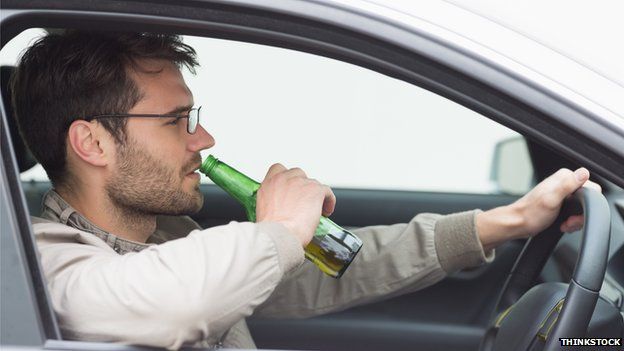
Would driverless cars reduce accidents caused by reckless drivers?
"If car drivers are replaced entirely by passengers who have no way of overriding or controlling the systems in the vehicle, it's possible manufacturers would become liable in the case of accidents."
"We simply don't have the answers yet," admits Andreas Gissler, managing director of Accenture's Automotive practice.
Stephan Appt, partner at law firm Pinsent Masons says: "The key issue is to find a means to enable car drivers to establish that it was not them, or at least not a technical defect of their car, when a crash occurs.
"There will be a need for event data recorders - like aeroplane black boxes - to be built into the cars. This, however, raises privacy concerns. Who shall own the data in the data recorder and who shall have the right to claim access to it?"
Sorting all this out will take years and lots of legal wrangling, not to mention new regulations at national and international level.
The technology isn't good enough yet
Many semi-autonomous technologies are already available in today's cars, from emergency braking to cruise control, self parking to lane keeping. This year, Ford is also planning to introduce automatic speed limit recognition tech and Daimler is hoping to test self-driving lorries on German motorways.
But this is a far cry from full autonomy.
Andy Whydell, director at TRW, one of the largest global engineering companies specialising in driver safety equipment, says radars have a range of about 200-300m (218-328 yards) but struggle with distances greater than this.
As a result, "sensors may not have sufficient range to react fast enough at high speed when something happens ahead," he says. "Work is going on to develop sensors that can see ahead 400m."
Lasers and cameras are also less effective in rainy, foggy or snowy conditions, he says, which potentially makes them unreliable in much of the northern hemisphere.
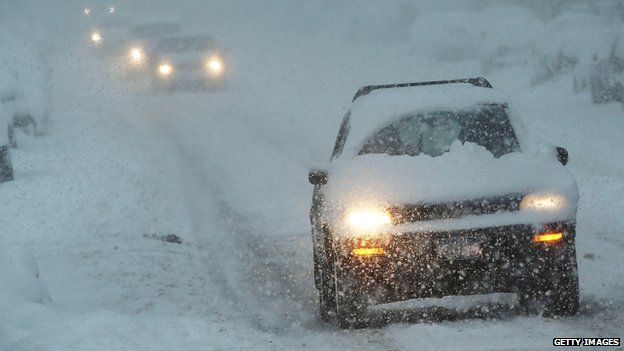
The sensors on driverless cars do not work well in hazardous conditions
Even Google has admitted that its prototype driverless car struggles to spot potholes or has yet to be tested in snow.
And how would a driverless car cope trying to exit a T-junction at rush hour if human-driven cars don't let it out?
Standards, standards
Driverless cars may need to communicate directly with each other using systems similar to aeroplane transponders - transmitting location, speed and direction to other vehicles.
But will the industry be able to agree a technological standard for this vehicle-to-vehicle communication?
"Standardisation will be the biggest challenge for driverless cars," says Pietro Boggia, principal of automotive and transportation at research company Frost & Sullivan.
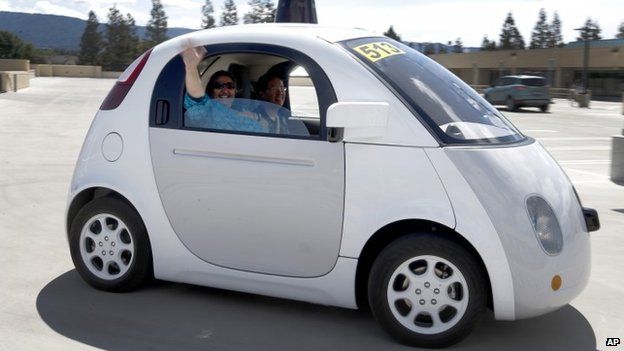
How well would Google's driverless car cope in the rush hour, mixing it with road-rage-prone humans?
"When you consider data analytics, it has to be shared across the industry. This implies open source software in cars. But this software is how OEMs demonstrate their knowhow."
In other words, collaboration in a highly competitive market will be difficult, to say the least.
Security risks
Cars will become increasingly connected to the internet and mobile networks, enabling live streaming of traffic data, music, and social media updates. Perhaps car-to-car communication will become standard, too. But connectivity presents security issues.
Researchers recently demonstrated how they could take remote control of a Jeep Cherokee by hacking into its internet-connected entertainment and navigation system via a mobile phone network. This prompted manufacturer FCA (Fiat Chrysler Automobiles) to announce a voluntary recall of 1.4 million cars so that software could be beefed up with extra levels of security.
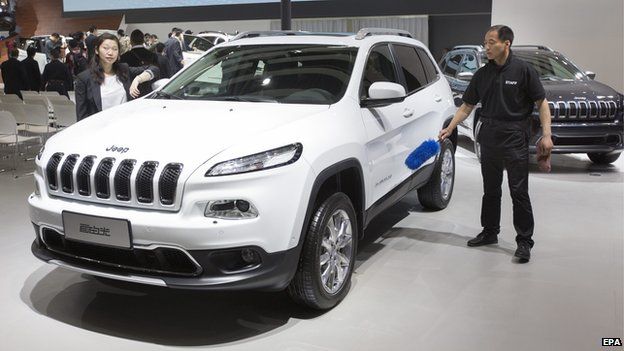
Fiat Chrysler Automobiles had to recall 1.4m cars after security flaws were discovered in the radio system
In a related development, Manchester-based NCC Group said weaknesses in some car infotainment systems could allow hackers to seize control of a vehicle's brakes or steering. Attacks could be mounted via digital audio broadcasting (DAB) radio signals, the company claimed.
Do we even want them?
The global success of BBC's Top Gear is just one indication of just how much we love cars and driving. Rightly or wrongly, many of us love the thrill of speed and the sense of freedom cars give us. Being in control is an important aspect of that.
But in the driverless world we become passive and disengaged; the car is reduced to a commodity, a mere tool for mobility. Where's the fun in that? Driver surveys suggest we are at least ambivalent about the technology.

Will new Top Gear presenter Chris Evans carry on the programme's "petrolhead" tradition?
While driverless cars could offer valuable mobility to the elderly and people with varying degrees of disability, most experts believe such vehicles will be restricted to urban settings on prescribed routes only.
"Full autonomous driving, where you programme your car to drive somewhere and read the paper in the back, that's science fiction to me to be honest," concludes Accenture's Mr Gissler.
Source: www.bbc.com
